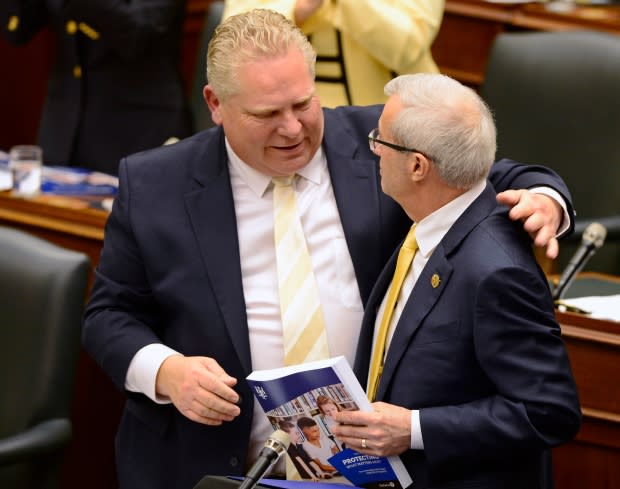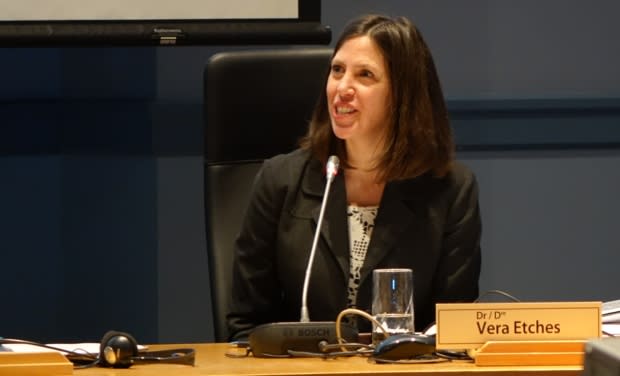Ontario budget delivers cuts — and confusion — to Ottawa
When the Progressive Conservative government tabled its first provincial budget earlier this month, the City of Ottawa breathed a tentative sigh of relief.
After all, the capital's big-ticket projects — the extension of the LRT, a treatment centre at CHEO, a new Civic campus of the Ottawa Hospital — made the cut in the 343-page document.
But almost immediately, it has become clear that the 2019 provincial budget will cost Ottawa money. And almost as troubling as the loss of funding is the confusion around exactly what's on the chopping block.
Broken promise on gas tax
During last year's Ontario election, the PCs said they would honour the former Liberal government's plan to double the amount of provincial gas-tax money given to cities by 2021 — a move that would have meant at least $36 million more each year for the city.
Ottawa was counting on that money as part of its long-term financing plan for transit, including paying for LRT Stage 2.
Less than a year after being elected, the PCs broke that promise in a single paragraph in the budget.
How the city will make up the shortfall — $1 billion over the 30-year life span of the transit plan — will be the subject of what is sure to be a contentious report coming to council in July.
Cuts to public health funding
Don't remember cuts to public health as part of any party's campaign rhetoric last spring?
Neither do the folks at Ottawa Public Health.
The provincial budget called for Ontario's public health boards to be amalgamated into 10 regional boards. While Ottawa had no idea this was coming, our city's medical officer, Dr. Vera Etches, said the idea of merging boards has been batted around for awhile — including by the former Liberal government.
She's not necessarily against the idea, she told reporters Wednesday, but it's a complicated process to merge staff from across eastern Ontario into one system, and do it all by next April.
Of course, public health staff are concerned for their jobs, but they're also worried about how a public health system will be responsive to the health issues of individual communities.
Being able to respond nimbly to a wide range of health needs becomes even more of a concern when your budget is going to be cut.
The province wants to take $200 million out of the public health budget by 2021. Currently, the province funds 75 per cent of the public health costs — health care is a provincial responsibility — and the city covers the rest. But suddenly, and without warning, the province is reducing its share of funding to 70 per cent.

That seems like a modest cut, but it amounts to about $3 million — money that goes a long way when you're running a quit-smoking campaign or paying restaurant inspectors.
This funding cut is on top of money pulled from the city's supervised consumption site on Clarence Street, which has been used thousands of times since its opening in 2017, and costs more than $1 million to operate annually.
More cuts to public health are expected in coming years. City officials say they've been told by their provincial counterparts to expect Queen's Park to pick up just 60 per cent of the public health tab in coming years.
Confusion abounds
Aside from cutting funding, one of the problems the PC budget has created is mass confusion.
The city has nothing in writing about the province's plans, nor any timelines for possible changes in funding.

Take the paramedic debacle. The budget actually calls for "better integrating Ontario's 59 emergency health services operators and 22 dispatch centres," which most paramedic chiefs thought was about updating dispatch technology. A few days after the budget was released, provincial government sources told CBC that the province's 59 municipal paramedic units would be merged into 10.
"It's shaken everybody up," Anthony Di Monte, Ottawa's GM of emergency services, told reporters last week. "It's very difficult as an executive to give answers if I don't have any data or any facts."
Since then, Premier Doug Ford has distanced himself from the news — and a 2018 policy paper written for the PCs that calls for paramedic consolidation and possible privatization — promising no paramedics would lose their jobs.
But no one at the municipal level knows what to believe.
More unpleasant surprises possible
That's a problem for the city. Facing cuts from a higher level of government isn't ideal for a municipality, but at least it can plan if it knows what's coming.
So far, this provincial government is delivering one unpleasant surprise after another to municipalities. And there are hints of more on the horizon.
The budget makes a point of saying that the "growth" in transfer payments from the province to municipalities has been "unsustainable" and that the government will be looking for "greater efficiencies." The public health funding cuts and whatever the province is planning with ambulance service appear to be part of those "efficiencies." What else does the province have in store?
One thing to watch for: the PC government's "Housing Supply Action Plan" in coming weeks.
Part of the way the province wants to make housing more affordable is to decrease development charges. The problem is that the millions of dollars Ottawa collects each year in development charges help pay for not just roads and sewers in new housing communities, but also libraries and community centres.
The budget says the government is "taking meaningful action to support municipalities in a sustainable and responsible way." But keeping cities in the dark about future plans seems a curious way to do that.

